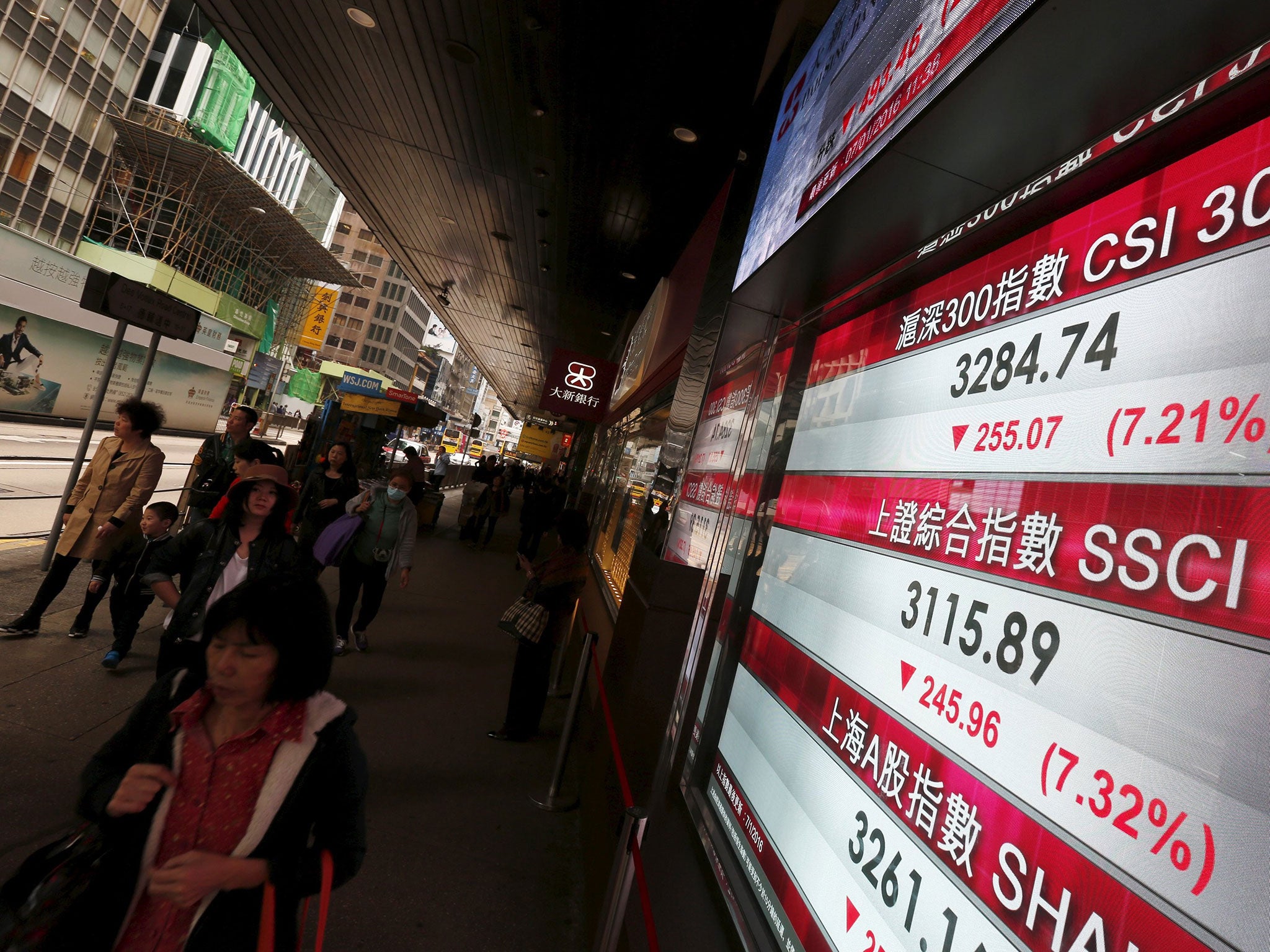Wall Street slides in New Year as China shuts down and oil tumbles
US stocks have dropped to a three-month low due to China jitters and tumbling oil prices

Your support helps us to tell the story
From reproductive rights to climate change to Big Tech, The Independent is on the ground when the story is developing. Whether it's investigating the financials of Elon Musk's pro-Trump PAC or producing our latest documentary, 'The A Word', which shines a light on the American women fighting for reproductive rights, we know how important it is to parse out the facts from the messaging.
At such a critical moment in US history, we need reporters on the ground. Your donation allows us to keep sending journalists to speak to both sides of the story.
The Independent is trusted by Americans across the entire political spectrum. And unlike many other quality news outlets, we choose not to lock Americans out of our reporting and analysis with paywalls. We believe quality journalism should be available to everyone, paid for by those who can afford it.
Your support makes all the difference.Wall Street stocks have dropped to a three-month low in the New Year as oil prices tumbled, China halted companies from trading and its yuan currency plunged in value.
The mainland China blue chip index - the CSI 300 - dropped almost 7% on Wednesday alone.
This movement had an impact overseas. The US market fell by 1.6% on Thursday morning, the second consecutive sharp fall this week, and European markets were hit harder, with the Euro Stoxx 600 index down 2.8% and London’s FTSE 100 shedding 2.4%.
The jitters across world markets have prompted billionaire investor George Soros to make comparisons with the financial crash of 2008 and told investors to be cautious, as reported by Bloomberg.
China, which deliberately manipulates the value of its currency to make exports more competitive, allowed its yuan to make the largest fall in five months, raising concerns that its economy is weaker than anticipated. Stocks listed in Shanghai were also halted for the second time since Monday to try and mitigate the freefall seen earlier this week.
In August, Chinese authorities halted half of its stocks listed across mainland markets Shanghai and Shenzhen to stop capital outflows, fueled and exacerbated by the fact that its citizens had been encouraged to make leveraged investments in these companies and wanted to then sell their holdings. As a result the Dow fell 1,000 points during intraday trading.
IG Group senior market analyst Chris Beauchamp told The Independent: “It’s been a very bad start to the year, and it could get worse from here.”
Mr Beauchamp said comparisons with 2008 were “premature” but more reasonable comparisons could be found with August 2015.
“We are seeing a lot of concerns at the moment - we’ve had the fist rate hike in the US in nine years plus the slowdown in China have unsettled the narrative we’ve been hearing over the last six years [since the end of the crisis],” he explained. ‘However there are reasons to be optimistic. The US would not have raised rates if not.“
Meanwhile oil prices continue to slide, now below $33 per barrel and hovering at 12-year lows due to a glut of supply and weak demand.
The World Bank has cut its global economic growth forecast for 2016, citing weak performance in emerging markets like China which is set to dampen overall global performance.
As investors shed their riskier assets, they are turning to so-called safe havens instead like gold, the Japanese yen and US government Treasury bonds.
Join our commenting forum
Join thought-provoking conversations, follow other Independent readers and see their replies
Comments